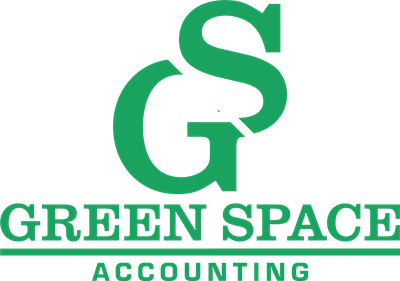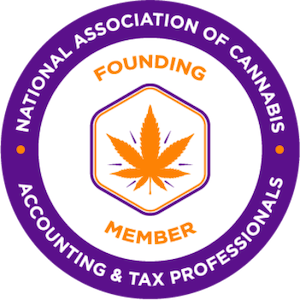
As recreational legalization across the country increases, more and more states are opening themselves up to the acceptance of cannabis businesses and dispensaries, and gearing up to participate in a rapidly growing industry and serve an eager customer base.
Recognizing the negative impacts that former marijuana prohibition tactics had on its communities, New York has recently made changes to its policy surrounding the production, distribution, and use of marijuana in hopes to establish a well-regulated industry that generates tax revenue for the state.
This article will outline the current legislations surrounding cannabis distribution and sale in New York, as well as the requirements needed for opening a dispensary in the near future.
The Marijuana Regulation and Taxation Act (2021)
On March 31, 2021 Governor Andrew Cuomo signed the “Marijuana Regulation and Taxation Act”, establishing New York as the 15th state to permit adult use recreational cannabis use. Specifically, the law removes cannabis from the state’s Controlled Substances Act and allows for overall regulation of the possession, cultivation, and sale of the plant. The bill is modeled in large part on the laws that currently regulate alcohol and tobacco, and also builds on lessons learned from states like Colorado and Washington that have several years of experience in regulating marijuana.
While much of the legislation is centered around the laws regulating adult-use and possession of cannabis, there is also plenty of information establishing the new industry cannabis cultivation and production and licensure needed to start a dispensary business in the state.
Key Features of the MRTA
Here are several key features of the MRTA that pertain to entrepreneurs looking to open a cannabis business in New York:
Cultivates the Emergence of Small and Local Businesses
With legal marijuana trade now possible, the State of New York anticipates the massive growth of a cannabis retail industry, and ensures that citizens from all backgrounds will have an opportunity to participate in the market. The MRTA restricts vertical integration in order to encourage the creation of small business and develop a thriving local industry.
Similar to New York’s craft wine and beer industry, the bill also encourages entry into the legal market through a micro-license structure that allows small scale production and sale as well as delivery. The start-up costs associated with these activities are much lower, and reduce barriers to entry for people with less access to capital.
Creates the Bureau of Marijuana Policy
The MRTA announces the creation of the Bureau of Marijuana Policy, which will be the governing body responsible for providing regulatory oversight, and issuing
licenses to produce, process, test, dispense, distribute, and deliver marijuana. The Bureau of Marijuana Policy is prohibited from considering individuals’ past drug convictions for the purposes of denying a license, ensuring that those harmed by the war on drugs are not restricted from participating in the new market.
Directs Revenue from Marijuana Sales to Communities Most Harmed by Prohibition
After addressing the administrative costs of regulating the marijuana market, the tax revenue from cannabis sales will be used to conduct studies analyzing the impacts of marijuana legalization on public health and safety, youth use, the state economy, and the criminal justice system.
Revenue will also be allocated to a Community Grants Reinvestment Fund, established to provide a mechanism to invest in communities that have been disproportionately impacted by the drug war. The fund will be accessible to community-based organizations for job training and placement, re-entry services, and adult education programming.
How Cannabis is Taxed in NY
There are three taxes on adult use cannabis that are established by the MRTA. The first is an excise taxed place on the sale of cannabis from a distributor to a retailer, which will be based upon the type of product and concentration of THC within it. For retail and dispensary sales directly to consumers, there will be an additional 9% state tax, and 4% local tax to be collected by the state on behalf of the town or city where the dispensary is located.
All money gained from taxes will be deposited in the New York state cannabis revenue fund, focused on implementing cannabis law and regulating the program. The remaining funds would be split as follows: 40% to Education; 40% to the Community Grants Reinvestment Fund; and 20% to the Drug Treatment and Public Education Fund.
Starting a Cannabis Business in NY
Because the bill is still in the beginning stages of operation, the Office of Cannabis Management needs to complete several key tasks, including appointing the Cannabis Control Board, issuing and adopting regulations, and creating a formal process for issuing, accepting and awarding licenses. If the Cannabis Control Board is established this summer and regulations are adopted by year’s end, licenses could potentially begin to be issued by 2022.
Getting a Cannabis License
Even though they are not yet available for application, here are some examples of the different types of adult-use licenses:
- Cultivator license
- Nursery license
- Processor’s license
- Wholesale distributor
- Cooperative license
- Microbusiness license authorizing limited cultivation, processing, distribution, delivery, and sale
- Retail dispensary
- Delivery license
The application process for these licenses plans to be very similar to the current process of applying for a liquor license in New York. An individual will first submit an application to the Bureau of Marijuana Policy, which will review and issue the license, if granted.
For entrepreneurs planning to open a dispensary or physical retail location, the property intended for use must meet zoning requirements similar to locations that sell alcohol, including their distance from a school or place of worship. The Bureau of Marijuana Policy will then notify the local municipal government or community board and allow for public input in their determination of whether or not to approve or deny a license.
If you’re applying for a license, you’ll need to have the following info available for disclosure:
- A plan to ensure diversified hiring of employees from all backgrounds
- Ownership and investment information (including full corporate structure)
- Evidence of good moral character (including fingerprinting and background check of employees)
- Information about the location and premises to be licensed
- All relevant financial statements, including 5-year projected forecast, projected revenue, operating costs etc.
Potential Fees
Until regulations are further developed by the Office of Cannabis Management, the exact costs associated with obtaining a cannabis license in New York are unavailable. However, looking at the 2015 application process for medical licenses can provide an estimate of the fees, including a non-refundable application fee of $10,000, and a $200,000 registration fee, that would be refunded iif applicant is denied registration.
While it depends on the facility size and operation, typically an overall budget of between $400,000 and $1,000,000 would be required to open a dispensary in the state.
Bottom Line
If you’re looking to open a dispensary in New York, Green Space Accounting can assist you every step of the way. Our team is dedicated to helping you achieve peace of mind when it comes to your company’s finances and compliance, so you can focus on what matters most– growing and establishing your business.
Click below to book a consultation today!
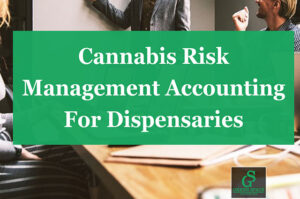
Cannabis Risk Management Accounting For Dispensaries
As dispensary owners, you have several responsibilities and you occasionally wear different hats in your business. This is hard to juggle, especially if you don’t
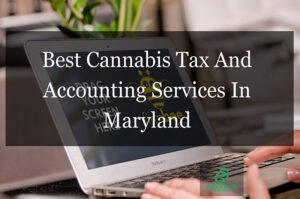
Best Cannabis Tax And Accounting Services In Maryland
If you’re a dispensary or cannabis owner looking to minimize your potential fines or fees accruing from local authorities, then you have come to the
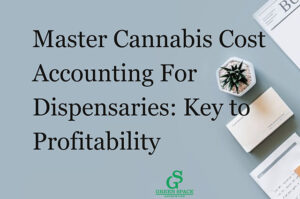
Master Cannabis Cost Accounting For Dispensaries: Key To Profitability
Your costs are part of operating your dispensary. They will always be there, regardless of the stage that your business is under. Knowing how to
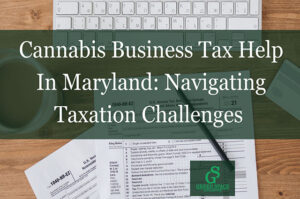
Cannabis Business Tax Help in Maryland: Navigating Taxation Challenges
Taxes are a little challenging to understand and manage, especially if you are in the cannabis industry. The industry has a set of regulations your

Financial Services Offered In The Cannabis Industry
Financial services offered in the cannabis industry can provide cannabis companies security or protection for their money. Many owners practice cash handling practices that can
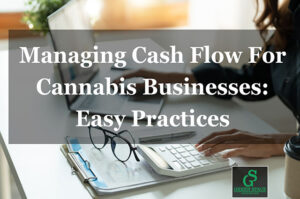
Managing Cash Flow For Cannabis Businesses: Easy Practices
Managing cash flow is a challenge if you’re trying to maintain it for financial stability. Without a stable cash flow system in place, your business
